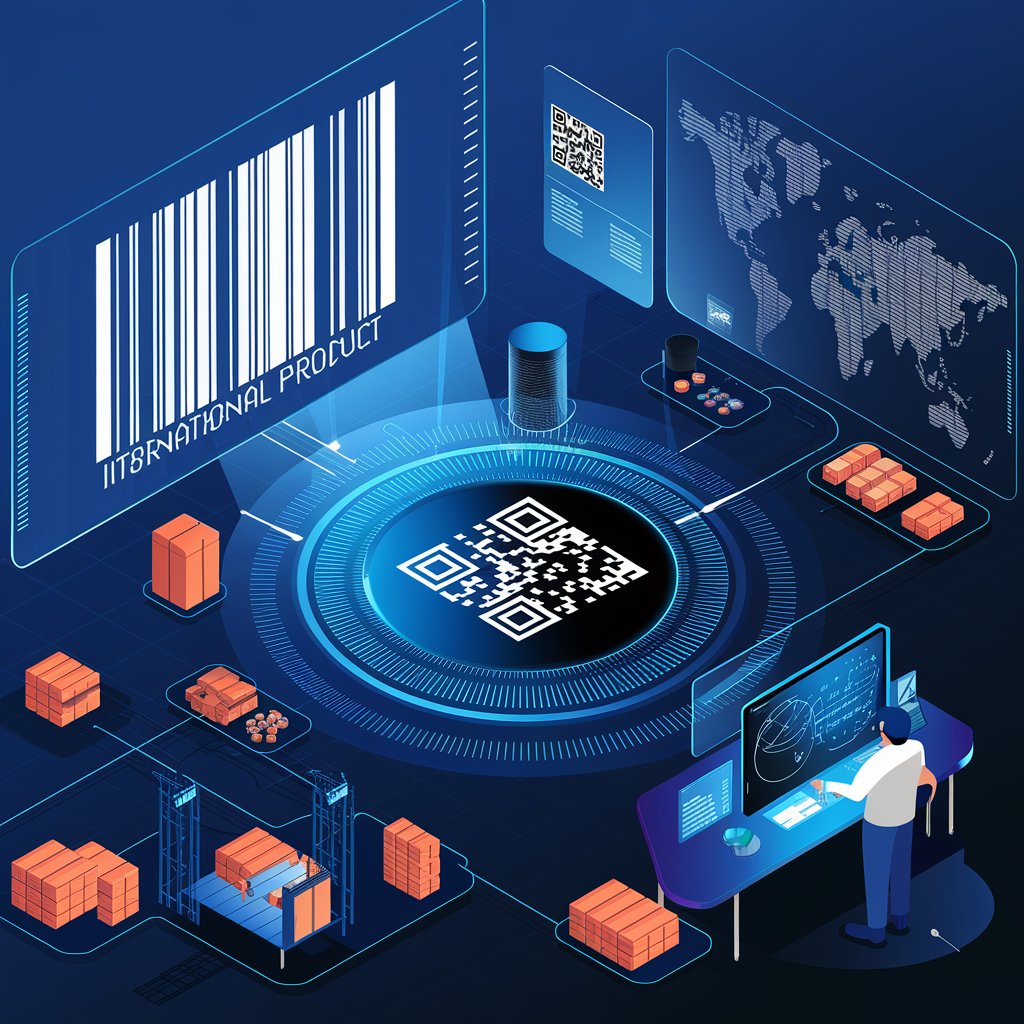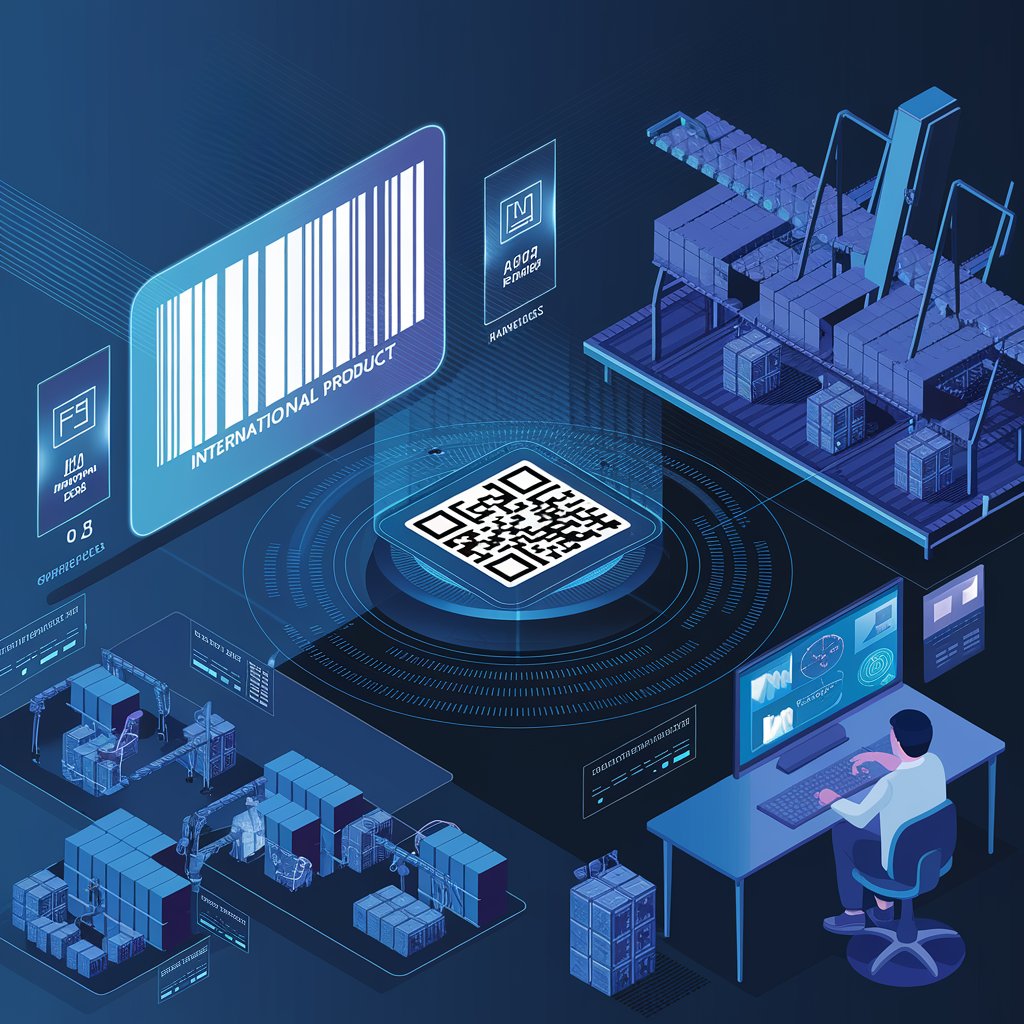What Is International Product Codes and Why Does It Matter?
But what exactly are International Product Codes, and why are they essential for businesses, supply chains, and consumers?
In this guide, we’ll break down everything you need to know about International Product Codes, including their purpose, different types, how they work, and their impact on global trade. 🚀📦

What Are International Product Codes?
International Product Codes (IPCs) are standardized numerical or alphanumeric identifiers used to classify, track, and manage products worldwide. These codes help in:
✔ Product identification – Ensuring that products are uniquely recognized.
✔ Supply chain efficiency – Enhancing tracking and inventory management.
✔ Global trade compliance – Meeting international import/export regulations.
✔ Retail and e-commerce operations – Streamlining product listings and pricing.
💡 Example: When a product is sold in multiple countries, an International Product Code ensures that the item remains identifiable across different supply chains and regulations.
Types of International Product Codes
There are various types of product codes, each serving specific industries and regulatory needs. Here are the most common ones:
1. UPC (Universal Product Code)
✔ Used mainly in North America.
✔ 12-digit barcode used in retail and e-commerce.
✔ Commonly seen on packaged goods in supermarkets.
💡 Example: A bottle of soda sold in the U.S. will have a UPC barcode that cash registers scan at checkout.
2. EAN (European Article Number)
✔ The global equivalent of UPC, used in Europe and worldwide.
✔ 13-digit format commonly used for retail products.
✔ Ensures international compatibility for barcode scanning.
💡 Example: A pair of shoes sold in Germany, the UK, and Japan will use an EAN code for global tracking.
3. GTIN (Global Trade Item Number)
✔ Standardized system covering UPC, EAN, and ISBN codes.
✔ Helps businesses track inventory and manage product listings.
✔ Used across e-commerce, retail, and logistics industries.
💡 Example: A laptop sold on Amazon, Walmart, and eBay will have a GTIN number for unified identification.
4. ISBN (International Standard Book Number)
✔ Used for books and publications.
✔ 10 or 13-digit unique identifier.
✔ Required for publishing, libraries, and book sales.
💡 Example: A best-selling novel will have a unique ISBN code to distinguish it from other editions.
5. HS Code (Harmonized System Code)
✔ Used in international trade and customs.
✔ 6 to 10-digit classification code for tariff calculations.
✔ Helps customs authorities categorize and track goods.
💡 Example: A company exporting automobile parts will need to use the correct HS Code for duty and tax calculations.
6. ASIN (Amazon Standard Identification Number)
✔ Exclusive to Amazon’s marketplace.
✔ 10-character alphanumeric code assigned to products.
✔ Helps sellers list and manage inventory on Amazon.
💡 Example: A smartphone case sold on Amazon will have a unique ASIN for tracking.

Why Are International Product Codes Important?
✅ 1. Improves Supply Chain Efficiency
✔ Standardized codes help businesses track, ship, and stock products efficiently.
✔ Enhances warehouse management by reducing inventory errors.
✅ 2. Facilitates Global Trade & Customs Compliance
✔ Helps governments regulate imports and exports.
✔ Ensures accurate tariff classification and tax calculations.
✅ 3. Enhances Retail & E-Commerce Operations
✔ Ensures consistent product listings across online marketplaces.
✔ Reduces errors in pricing, ordering, and checkout processes.
✅ 4. Reduces Counterfeiting & Fraud
✔ Unique product codes prevent fake goods from entering the supply chain.
✔ Retailers can verify product authenticity before selling.
✅ 5. Improves Consumer Confidence
✔ Customers can trust product origins and quality.
✔ Enhances brand credibility and transparency.
International Product Codes vs. Other Identification Systems
Feature | UPC | EAN | GTIN | HS Code | ISBN | ASIN |
Primary Use | Retail | Global Retail | Universal ID | Customs & Trade | Books & Publishing | Amazon Marketplace |
Digits | 12 | 13 | 8-14 | 6-10 | 10-13 | 10 |
Industry | Retail & E-Commerce | Retail | Global Trade | Customs & Shipping | Publishing | Online Retail |
Global Compatibility | North America | Worldwide | Worldwide | Worldwide | Worldwide | Amazon Only |
💡 Key Takeaways:
✔ UPC & EAN are used for retail barcodes.
✔ GTIN is a universal global trade identifier.
✔ HS Codes are necessary for customs and trade compliance.
✔ ISBN & ASIN are specialized for books and e-commerce.

How to Use International Product Codes in Your Business
For Manufacturers & Suppliers:
✔ Assign the correct UPC, EAN, or GTIN to products.
✔ Register products with GS1 (Global Standards Organization).
✔ Ensure HS codes are used for international trade.
For Retailers & E-Commerce Sellers:
✔ Verify barcodes before listing products online.
✔ Use GTINs for better search visibility on platforms like Amazon and Walmart.
✔ Ensure consistent product coding across sales channels.
For Importers & Exporters:
✔ Classify products with the correct HS code for customs compliance.
✔ Avoid delays and fines by using the right product codes.
✔ Work with logistics partners for efficient shipping.
Future Trends in International Product Codes
As technology evolves, product coding systems are also advancing to improve global trade, logistics, and retail operations.
🚀 AI & Machine Learning for Automated Product Classification
🚀 Blockchain for Secure & Transparent Product Tracking
🚀 QR Codes & RFID for Smarter Inventory Management
🚀 Enhanced Digital Barcodes for E-Commerce & Mobile Scanning
Businesses that embrace new technologies will stay ahead in global supply chain management.

Conclusion
International Product Codes are critical for modern commerce, ensuring efficiency, security, and global standardization.
✔ Best for: Manufacturers, retailers, e-commerce sellers, and global traders.
✔ Challenges: Requires proper registration, updates, and compliance with international regulations.
By understanding and utilizing International Product Codes, businesses can streamline operations, reduce errors, and enhance their global market reach. 🌍📦💡
